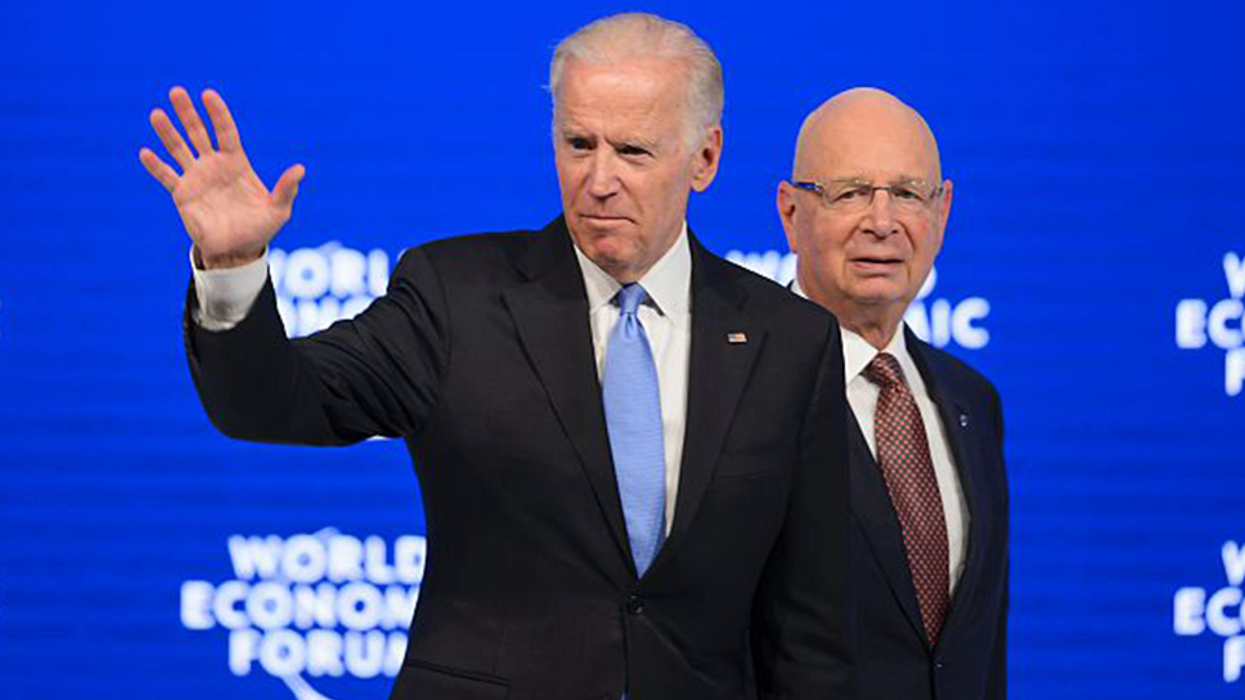
FABRICE COFFRINI/AFP via Getty Images

Medicaid's new guidelines, which allow states to direct a portion of funding to new health care initiatives such as rent or utilities, mirror the World Economic Forum's guidelines for "health equity;" ideas that have been decades in the making.
The Biden administration's Medicaid guidelines recently expanded to allow states to devote up to 3% of their Medicaid spending to experimental subsidies so long as they add in their own funding and evaluate the outcomes.
Guidance comes out of the Biden administration's U.S. Playbook to Address Social Determinants of Health, which lists housing security, food security, education access, and "healthy environment" as the top causes for inequal outcomes.
The push for "health equity" comes at the same time the World Economic Forum has published guidelines for health care and "urban transformation."
"Improving health and health equity for vulnerable populations requires addressing the social determinants of health," the WEF stated, citing a study from the Kaiser Family Foundation. The KFF refers to itself as a "nonpartisan" and "independent source for health policy research."
The nonprofit out of San Francisco published a study in 2018 titled "Beyond Health Care: The Role of Social Determinants in Promoting Health and Health Equity."
The study lists a series of "social determinants" of health care, all of which are included in the U.S. playbook.
"Socioeconomic status, education, neighborhood and physical environment, employment, and social support networks," as well as "access to health care" are listed as the determining factors for a citizen's health.
In fact, the study directly mentions state programs and "Medicaid-specific initiatives focused on addressing social needs."
The Biden administration's foray into "social determinants" as a basis for health care needs goes back to at least April 2022, when it released graphics that were nearly identical to the KFF's determinants study.
Searching farther back, the WEF has been promoting the social determinants strategy since at least January 2020.
"It’s time for the healthcare sector to take bold action," wrote Kelly Barnes and Dr. Rana Mehta. Both authors penned just that single article for the WEF on behalf of PwC, a global consulting firm.
PwC has been heavily pushing "inclusion" and ESG through its many partnerships. The company dates back approximately 170 years and has alumni that include the CEOs of Delta Airlines and Alaska Airlines, founder of Nike Phil Knight, Richard Kramer, CEO of Goodyear Tire, and the CFO of payment processor Stripe.
The strategies go farther back, however — all the way to 2017 when the National Academy of Medicine cited the World Health Organization. Even then, the document cited that "responding to nonmedical needs of patients such as transportation, housing, and food" was a key strategy for Medicaid.
The U.K. government predates all of these findings however, with its 2014 "health equity briefing" document. In the handout, the government cited the Institute of Health Equity, which appears to be the source of social determinant dogma.
The institute's director, Michael Marmot, is listed as having "led research groups on health inequalities for over 40 years." Marmot was responsible for the U.K.'s review of health inequalities in 2010, followed by Europe's in 2014.
It is Marmot's work with the WHO in 2005 that seems to be the origin of all health equity initiatives still being undertaken 20 years later. His 2005 study titled "Social Determinants of Health Inequalities" mimics much of the language westerners have become all too used to.
"Inequalities highlight systemic and structural issues contributing to differential health experiences among various population groups."
It was from there that the WHO established its framework for such legislation in 2008, in which it sought to "to support countries and global health partners in addressing the social factors leading to ill health and health inequities."
The final report started just as you imagine, and stated "social justice is a matter of life and death."
Like Blaze News? Bypass the censors, sign up for our newsletters, and get stories like this direct to your inbox. Sign up here!
Andrew Chapados